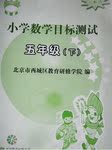
I tried an exciting ________ once.
A.sport
B.sports
C.sporting
 天天向上一本好卷系列答案
天天向上一本好卷系列答案 小学生10分钟应用题系列答案
小学生10分钟应用题系列答案 目标测试系列答案
目标测试系列答案科目:初中英语 来源:初中二年级上(册) 69领航·单元同步训练 英语 题型:016
I tried an exciting ________ once.
A.sport
B.sports
C.sporting
查看答案和解析>>
科目:初中英语 来源:2012-2013学年江西省景德镇市七年级下学期期末质量检测英语卷(带解析) 题型:阅读理解
In the morning , we went camping in Green Nature Park. We were happy because it was a sunny day. However, in the afternoon , when we finished our picnic(野餐), it was dark and windy. Soon ,there was a shower. Unluckily, none of us brought an umbrella. We ran about but we could find no place to hide(藏身).
Twenty minutes passed and it was still raining .There were hours to go before we reached the campsite(野营地). It was even worse that our compass showed that we went to the wrong way. We had lost our way!
We had to make a quick decision as it was raining heavily. Chris said we could set up a tent(帐篷) to hide in, so Mary and Tom helped to set up it . Chris and I tried to make a fire to keep up warm. But we couldn’t as everything was wet. We dried ourselves and waited inside the tent. At about five o’clock , it stopped raining. We decided to give up the camping trip because all of us were tired.
This camping trip may not be successful but we know each other better. And the most important thing I’ve learned from this trip is the importance of team spirit(精神).
【小题1】It was even worse that they _____.
| A.had no picnic | B.lost their way |
| C.couldn’t light the fire | D.couldn’t know each other |
| A.They gave up the camping at last. | B.None of them had an umbrella. |
| C.We know each other better. | D.We ran about and found a place to hide. |
| A.compass | B.tent | C.fire | D.the rain |
| A.enjoying holidays | B.taking a compass |
| C.working together | D.making a decision |
查看答案和解析>>
科目:初中英语 来源:2011-2012学年福建省厦门市翔安区初三质量检测考试英语试卷(解析版) 题型:阅读理解

An armless pianist who plays with his toes has won the first series of China’s version of the internationally popular TV talent show, “China’s Got Talent.”
Liu Wei, a 23-year-old Beijing-born pianist, who lost both his arms at the aged of 10 when he was electrocuted(触电)during a game of hide-and-seek. Liu Wei stayed in rehabilitation(康复)centre for 2 years. When he got out, he was introduced to Beijing’s disabled swimming team, and he managed to take 2 gold medals in the National Disabled Swimming Championship at the aged of 14. But soon he was told not to do too much sport by the doctor.
Liu Wei was very sad. Luckily, the door was shut on sports, but it opened in music. At the age of 18, he started to learn the piano. He could not find a teacher to lead him to play with his toes, so he began teaching himself. Liu said, “I knew if I tried, I might get a chance at success. If I didn’t try, I would lose my future.”
He carried on a daily 7-hour practice, his improvement gave him hope. He kept practicing and made progress gradually. In early 2011, he gave a memorable performance in Vienna’s Golden Concert Hall. In 2012, he received the award “Top Ten People Who Moved China”.
1.Liu Wei lost both his arms when he was______ years old.
A. 10 B. 14 C. 23
2.Besides playing the piano, Liu Wei is also good at _______.
A. playing games
B. learning from others
C. armless swimming
3.Liu Wei was taught by ________ to play the piano with toes.
A. his teacher B. his mother C. himself
4.The sentence “The door was shut on sports, but it opened in music” means that Liu Wei ______.
A. lost the future of music
B. got other chances at success
C. couldn’t do sports
5.The best title of this passage is “_________”
A. One is never too old to learn
B. Time and tide wait for no man
C. Where there’s a will, there’s a way
查看答案和解析>>
科目:初中英语 来源:模拟题 题型:完形填空
| 完形填空。 | ||||
| Some people are right-handed and some are left-handed. 1 knows the reason why a person becomes right-handed or left-handed. It is not true that it is caused by the 2 in which his parents educate him. In other words, a person is 3 to be right-handed or left-handed. Moreover, the left-handed and the right-handed "think" differently. 4 use the hand you're not 5 can be very upsetting. One day I tried an experiment: 6 hands while eating rice with chopsticks. Being a right-hander, I hoped it would not be too 7 for me to take the food with my left hand. Soon after I started, I realized I didn't know what I was 8 . So I moved in front of a big mirror, in order that I could observe my 9 clearly. Looking at myself in the mirror, I found I looked 10 a man who had 11 used chopsticks. I grew more and more nervous and finally I had to 12 . My experience shows, being 13 to use the hand one is not used to affects a person's mind. So we should not try to change a left-hander to a right-hander. Some people still think 14 is bad, but luckily this idea is 15 . | ||||
|
查看答案和解析>>
湖北省互联网违法和不良信息举报平台 | 网上有害信息举报专区 | 电信诈骗举报专区 | 涉历史虚无主义有害信息举报专区 | 涉企侵权举报专区
违法和不良信息举报电话:027-86699610 举报邮箱:58377363@163.com